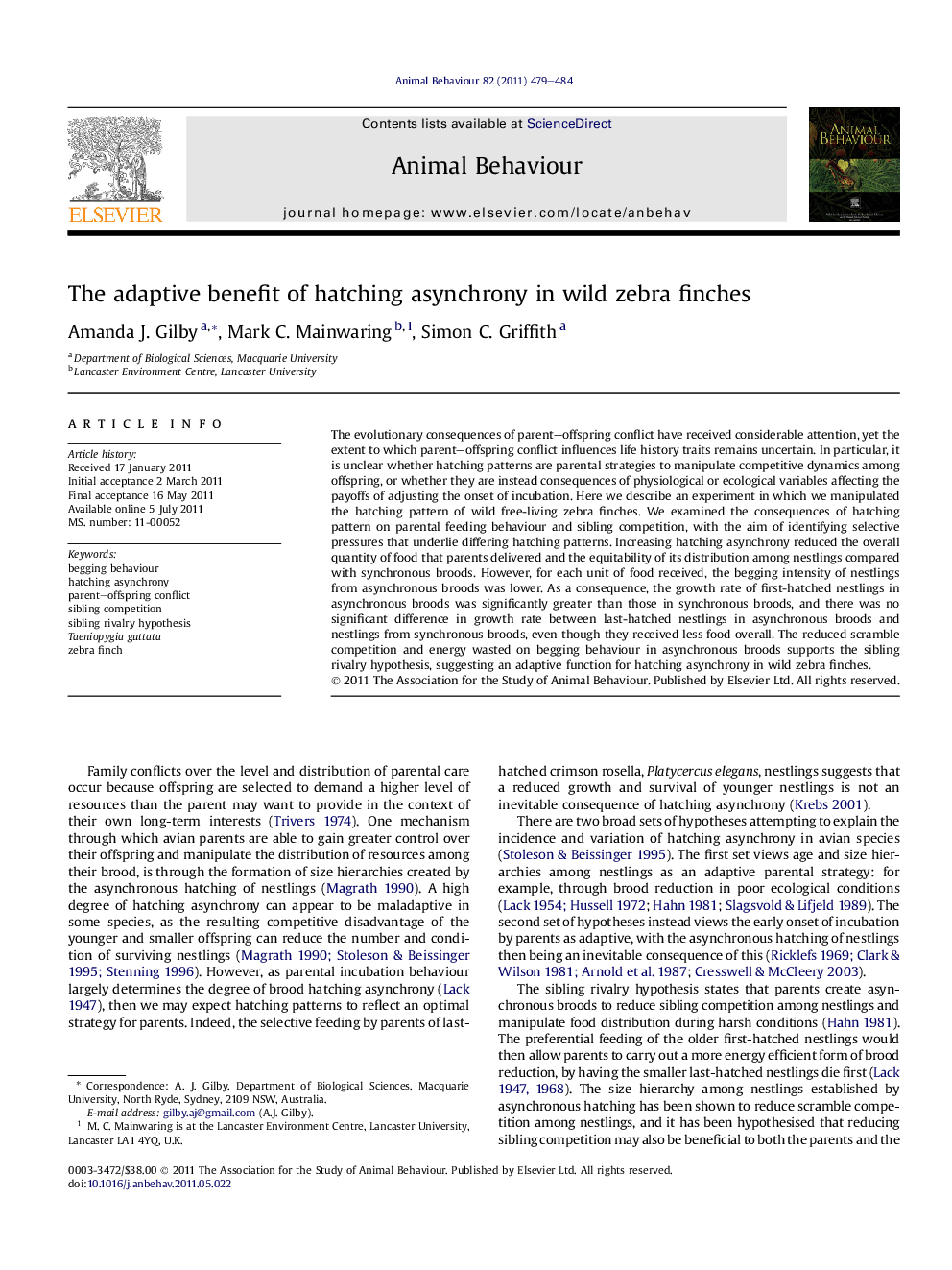| کد مقاله | کد نشریه | سال انتشار | مقاله انگلیسی | نسخه تمام متن |
|---|---|---|---|---|
| 2416960 | 1104303 | 2011 | 6 صفحه PDF | دانلود رایگان |

The evolutionary consequences of parent–offspring conflict have received considerable attention, yet the extent to which parent–offspring conflict influences life history traits remains uncertain. In particular, it is unclear whether hatching patterns are parental strategies to manipulate competitive dynamics among offspring, or whether they are instead consequences of physiological or ecological variables affecting the payoffs of adjusting the onset of incubation. Here we describe an experiment in which we manipulated the hatching pattern of wild free-living zebra finches. We examined the consequences of hatching pattern on parental feeding behaviour and sibling competition, with the aim of identifying selective pressures that underlie differing hatching patterns. Increasing hatching asynchrony reduced the overall quantity of food that parents delivered and the equitability of its distribution among nestlings compared with synchronous broods. However, for each unit of food received, the begging intensity of nestlings from asynchronous broods was lower. As a consequence, the growth rate of first-hatched nestlings in asynchronous broods was significantly greater than those in synchronous broods, and there was no significant difference in growth rate between last-hatched nestlings in asynchronous broods and nestlings from synchronous broods, even though they received less food overall. The reduced scramble competition and energy wasted on begging behaviour in asynchronous broods supports the sibling rivalry hypothesis, suggesting an adaptive function for hatching asynchrony in wild zebra finches.
Journal: Animal Behaviour - Volume 82, Issue 3, 1 September 2011, Pages 479–484